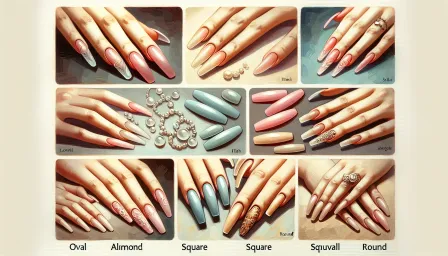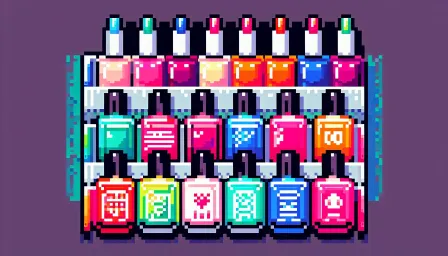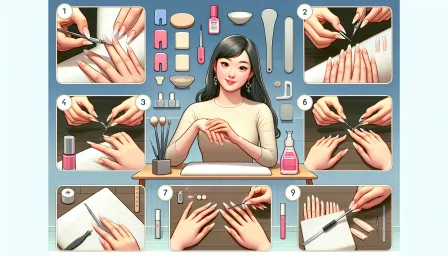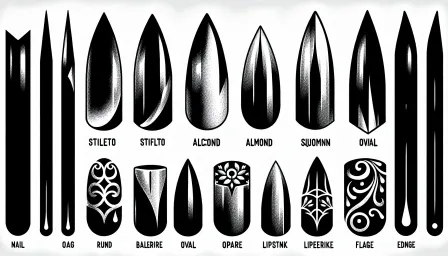The Ultimate Guide to Nail Strengthening for Preventing Breakage
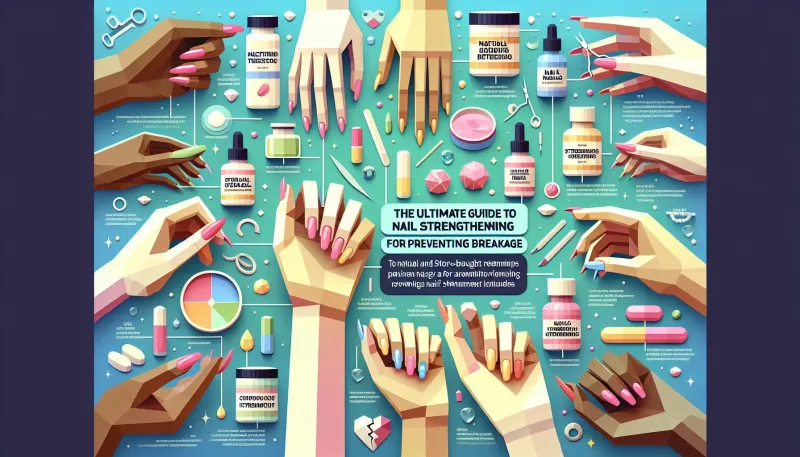
Learn effective nail strengthening techniques to prevent breakage and maintain healthy nails. Comprehensive guide with expert tips and tricks.
Introduction
Having strong and healthy nails isn't just a sign of good grooming; it's also an indicator of overall well-being. Weak, brittle nails are prone to breaking, peeling, and other issues that can be both painful and aesthetically displeasing. This ultimate guide on nail strengthening for preventing breakage offers a comprehensive approach to achieving robust nails that can withstand daily wear and tear.
Understanding Nail Structure and Common Problems
Composition of Nails
Nails are made up of layers of a protein called keratin, which is also found in the hair and skin. The different parts of the nail include the nail plate, nail bed, cuticle, and lunula (the crescent-shaped area at the base of the nail). Healthy nails have a smooth surface, are free of pits and grooves, and are uniform in color.
Common Problems Leading to Nail Breakage
The most frequent issues leading to nail breakage include:
- Brittle Nails: Often caused by dehydration or excessive exposure to water and chemicals.
- Peeling Nails: Typically result from physical trauma or repeated exposure to harsh nail treatments.
- Splitting: Can be a consequence of an imbalance in moisture content within the nails.
- Nail Fungus: An infection that can lead to discoloration and a weakening of the nail structure.
Effective Nail Care Routine
Moisturize Regularly
Keeping your nails and cuticles moisturized is crucial for preventing dryness and brittleness. Use a high-quality hand cream or oil, such as argan oil or jojoba oil, to nourish your nails daily.
Proper Nail Trimming Technique
Trim your nails straight across and then gently round the tips in a curve using a nail file. This prevents snags and reduces the risk of breaking.
Avoid Harsh Chemicals
Limit your nails' exposure to harsh chemicals, including household cleaners and acetone-based nail polish removers. When cleaning, always wear protective gloves.
Avoid Biting and Picking
Nail biting and picking can cause trauma and lead to breakage. If you struggle with this habit, consider using a bitter-tasting nail polish designed to deter nail biting.
Diet and Supplements for Stronger Nails
Essential Nutrients
A balanced diet rich in essential nutrients supports nail health. Key nutrients include:
- Biotin: Enhances nail thickness and reduces splitting. Found in eggs, almonds, and sweet potatoes.
- Proteins: Essential for the production of keratin. Include lean meats, fish, and legumes in your diet.
- Zinc: Aids in cell growth and repair. Good sources are spinach, chickpeas, and oysters.
- Iron: Prevents nail ridges and discoloration. Found in red meat, beans, and fortified cereals.
Supplements
If you're unable to get these nutrients from your diet alone, consider taking supplements. Biotin and multivitamins specifically formulated for hair, skin, and nails can be particularly beneficial.
Home Remedies for Nail Strengthening
Olive Oil Soak
Soaking your nails in warm olive oil for 10-15 minutes can improve strength and flexibility. Olive oil penetrates the nail and promotes moisture retention.
Tea Tree Oil Treatment
Mix a few drops of tea tree oil with a carrier oil like jojoba oil and apply to your nails. This helps combat fungal infections and strengthens the nails.
Sea Salt Soak
Combine 2 teaspoons of sea salt with warm water and a few drops of lemon juice. Soak your nails for 10-15 minutes to fortify them.
Best Practices for Manicures
Choose the Right Nail Products
Opt for nail hardeners and polishes with strengthening properties. Avoid products that contain formaldehyde and toluene, which can weaken your nails.
Limit Use of Acrylics and Gels
Acrylic and gel nails can cause significant stress on your natural nails, leading to thinning and breakage. Use them sparingly and give your nails time to recover between treatments.
Regular Breaks from Polish
Giving your nails a break from polish allows them to breathe and recover from potential damage caused by chemicals in nail products.
When to Seek Professional Help
If you notice persistent nail problems such as severe discoloration, pain, or signs of infection, it might be time to consult a dermatologist or a healthcare professional. They can diagnose underlying conditions that might be affecting your nail health and recommend appropriate treatments.
Conclusion
Strong, healthy nails are within reach if you follow a comprehensive nail care regimen and maintain a nutritious diet. By adopting these practical tips and remedies, you can significantly reduce breakage and enjoy beautiful nails that reflect your overall well-being.





